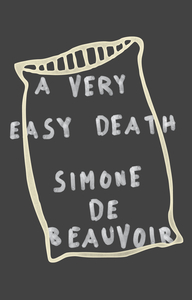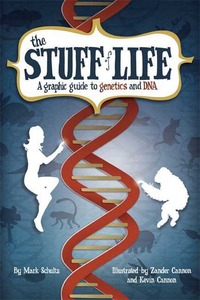Take a photo of a barcode or cover
kevin_shepherd's Reviews (563)
I enjoyed this more at age eighteen than at age fifty eight. I’m afraid forty years have made me more analytical, more critical, more rational, and more cynical.
When Burroughs published this in 1918 Piltdown Man had not yet been exposed as a hoax and terms like “negroid” and “Jap” were not yet intuitively racist and offensive. While, taken in the context of their time, such perceived transgressions are perfectly understandable, they nevertheless indelibly stamp the material as dated and the science, albeit fictional, as flawed.
I guess there are some touchstones of my youth that are best left to the fog of memory.
When Burroughs published this in 1918 Piltdown Man had not yet been exposed as a hoax and terms like “negroid” and “Jap” were not yet intuitively racist and offensive. While, taken in the context of their time, such perceived transgressions are perfectly understandable, they nevertheless indelibly stamp the material as dated and the science, albeit fictional, as flawed.
I guess there are some touchstones of my youth that are best left to the fog of memory.
When it comes to storylines, I find it quite impossible to know where Haruki Murakami is going to go next. One minute you’re looking for a lost cat, the next you’re tumbling into a parallel universe of talking peanut butter. It is exceedingly difficult to put his books down when you do not yet know if the half-boy/half-lobster possesses the key to Suzuki Rapscallion’s footlocker.
mag·i·cal re·al·ism /ˈmajəkəl ˈrē(ə)ˌlizəm/ noun : a literary or artistic genre in which realistic narrative and naturalistic technique are combined with surreal elements of dream or fantasy.
This is my third outing with Murakami and I have absolutely no regrets.
mag·i·cal re·al·ism /ˈmajəkəl ˈrē(ə)ˌlizəm/ noun : a literary or artistic genre in which realistic narrative and naturalistic technique are combined with surreal elements of dream or fantasy.
This is my third outing with Murakami and I have absolutely no regrets.
The key to maximizing the effect of Shakespeare, I’ve discovered, is to speak his words aloud. There is a dimension to his genius that is only comprehensible when you hear his locution. The mere act of reading Shakespeare silently, to oneself, seems a missed opportunity and, let’s be honest, a sacrilege.
Of course, this is problematic if you are accustomed to reading while commuting via public transportation. Nothing clears out a bus or a train faster than a passenger declaring, “The prince of darkness is a gentleman!”
Of course, this is problematic if you are accustomed to reading while commuting via public transportation. Nothing clears out a bus or a train faster than a passenger declaring, “The prince of darkness is a gentleman!”
“…about 'Candide,' I'll tell you. For years we've been letting that book get by. There were so many different editions, all sizes and kinds, some illustrated and some plain, that we figured the book must be all right. Then one of us happened to read it. It's a filthy book!” ~US Customs Official, Boston MA, 1929
“I had been for some hours extremely pressed by the necessities of nature; which was no wonder, it being almost two days since I had last disburdened myself. I was under great difficulties between urgency and shame …I went as far as the length of my chain would suffer, and discharged my body of that uneasy load …due care was taken every morning before company came, that the offensive matter should be carried off in wheel-barrows, by two servants appointed for that purpose.” (pg 22)
I should like to know what hellish contrivance of employment could possibly be worse than that of the two Lilliputian servants and their trusty wheelbarrows.
I should like to know what hellish contrivance of employment could possibly be worse than that of the two Lilliputian servants and their trusty wheelbarrows.
“When someone you love dies you pay for the sin of outliving her with a thousand piercing regrets.”
Brutal Honesty. Simone de Beauvoir recounts the last thirty days of her mother’s life. The fall. The hospitalization. The medications. The misdiagnosis. The diagnosis. The cancer.
If you’ve ever had the experience of watching someone you love slowly die then you will almost certainly feel an empathetic kinship with Simone. I know I did. I found her misgivings eerily familiar.
When propriety dictates that we perform surgery on the terminally ill, are we doing so for their benefit or for our own? Are we saving them? And if so, from what? Are we buying them an extra month or two so we can say those things we should have already said? Is their prolonged infirmity an act of mercy in their best interest or is it obliquely (or obviously) selfish?
There was a point in my grandmother’s Alzheimer’s, in my Aunt Kay’s cancer, in my Uncle Dean’s covid, when I had to ask, “Is it time to loosen our grip and say ‘I love you’ and ‘goodbye’?”
Brutal Honesty. Simone de Beauvoir recounts the last thirty days of her mother’s life. The fall. The hospitalization. The medications. The misdiagnosis. The diagnosis. The cancer.
If you’ve ever had the experience of watching someone you love slowly die then you will almost certainly feel an empathetic kinship with Simone. I know I did. I found her misgivings eerily familiar.
When propriety dictates that we perform surgery on the terminally ill, are we doing so for their benefit or for our own? Are we saving them? And if so, from what? Are we buying them an extra month or two so we can say those things we should have already said? Is their prolonged infirmity an act of mercy in their best interest or is it obliquely (or obviously) selfish?
There was a point in my grandmother’s Alzheimer’s, in my Aunt Kay’s cancer, in my Uncle Dean’s covid, when I had to ask, “Is it time to loosen our grip and say ‘I love you’ and ‘goodbye’?”
Years ago, say 1992 to 2000, my kids and I volunteered at the Benton/Franklin Humane Society in Pasco, Washington. Bob Christiansen was fairly well known there as an animal rights advocate and pet rescue/adoption supporter. At the time, all the proceeds from the sale of this book went to local animal shelters. I bought three copies (one of which he signed for me). It’s a win/win when one can obtain a good book while supporting a worthwhile cause.
Darwin For People In A Hurry
2013 - This is what a graphic biography should be - clear, concise, unbiased and exquisitely illustrated. 100 pages of coherent relevance with just a touch of humor here and there (I literally laughed out loud more than once). If you want an introduction to the life and legacy of Charles Darwin without the time commitment of his 224 page autobiography, this is your book.
2013 - This is what a graphic biography should be - clear, concise, unbiased and exquisitely illustrated. 100 pages of coherent relevance with just a touch of humor here and there (I literally laughed out loud more than once). If you want an introduction to the life and legacy of Charles Darwin without the time commitment of his 224 page autobiography, this is your book.
The Stuff of Life: A Graphic Guide to Genetics and DNA
Zander Cannon, Mark Schultz, Kevin Cannon
Schultz succeeds in making genetic science enormously entertaining and slightly less mind-numbing. From A to Z (Adenine to Zygotes) everything is explained in graphic detail (pun intended) and complex concepts are often reiterated with relatable and sometimes humorous analogies. This is a fantastic introduction made all the more enjoyable by Zander & Kevin Cannon's utterly remarkable illustrations. 4.5 Stars!
“[Women] see at a glance what most men could not see with searchlights and telescopes; they are at grips with the essentials of a problem before men have finished debating its mere externals. They are the supreme realists of the race. Apparently illogical, they are the possessors of a rare and subtle super-logic.”
Mencken, wielding both satire and sarcasm, oscillates between being very “Mark Twain” and being very “Archie Bunker.” I find him both hysterically funny and (often) terribly offensive. In some ways, his essays reflect the prevailing attitudes of the era, but in other ways he transcends the prejudices of America (circa 1918) by lampooning its social institutions and misogynistic civilities.
“If the work of the average man required half the mental agility and readiness of resource of the work of the average prostitute, the average man would be constantly on the verge of starvation.”
There are so many sardonic witticisms here that highlighting everything quote worthy became quite a chore.
“Complete masculinity and stupidity are often indistinguishable.”
Mencken on matrimony:
“A man in full possession of the modest faculties that nature commonly apportions to him is at least far enough above idiocy to realize that marriage is a bargain in which he gets the worst of it...”
Mencken on feminists:
“...all of the ladies to take to this political immolation seem to be frightfully plain. I know those of England, Germany and Scandinavia only by their portraits in the illustrated papers, but those of the United States I have studied at close range at various large political gatherings... I give you my word that there were not five women at either national convention who could have embraced me in camera without first giving me a chloral.”
Mencken on domestic violence:
“I served for a year or so as reporter for a newspaper in a police court, and during that time I heard perhaps four hundred cases of so-called wife-beating. The husbands, in their defense, almost invariably pleaded justification, and some of them told such tales of studied atrocity at the domestic hearth, both psychic and physical, that the learned magistrate discharged them with tears in his eyes and the very catchpolls in the courtroom had to blow their noses.”
It’s hard to pin Mencken down. I don’t know enough about him to decide if he’s a brilliant satirist or just an asshole... 4 tentative stars
Mencken, wielding both satire and sarcasm, oscillates between being very “Mark Twain” and being very “Archie Bunker.” I find him both hysterically funny and (often) terribly offensive. In some ways, his essays reflect the prevailing attitudes of the era, but in other ways he transcends the prejudices of America (circa 1918) by lampooning its social institutions and misogynistic civilities.
“If the work of the average man required half the mental agility and readiness of resource of the work of the average prostitute, the average man would be constantly on the verge of starvation.”
There are so many sardonic witticisms here that highlighting everything quote worthy became quite a chore.
“Complete masculinity and stupidity are often indistinguishable.”
Mencken on matrimony:
“A man in full possession of the modest faculties that nature commonly apportions to him is at least far enough above idiocy to realize that marriage is a bargain in which he gets the worst of it...”
Mencken on feminists:
“...all of the ladies to take to this political immolation seem to be frightfully plain. I know those of England, Germany and Scandinavia only by their portraits in the illustrated papers, but those of the United States I have studied at close range at various large political gatherings... I give you my word that there were not five women at either national convention who could have embraced me in camera without first giving me a chloral.”
Mencken on domestic violence:
“I served for a year or so as reporter for a newspaper in a police court, and during that time I heard perhaps four hundred cases of so-called wife-beating. The husbands, in their defense, almost invariably pleaded justification, and some of them told such tales of studied atrocity at the domestic hearth, both psychic and physical, that the learned magistrate discharged them with tears in his eyes and the very catchpolls in the courtroom had to blow their noses.”
It’s hard to pin Mencken down. I don’t know enough about him to decide if he’s a brilliant satirist or just an asshole... 4 tentative stars









